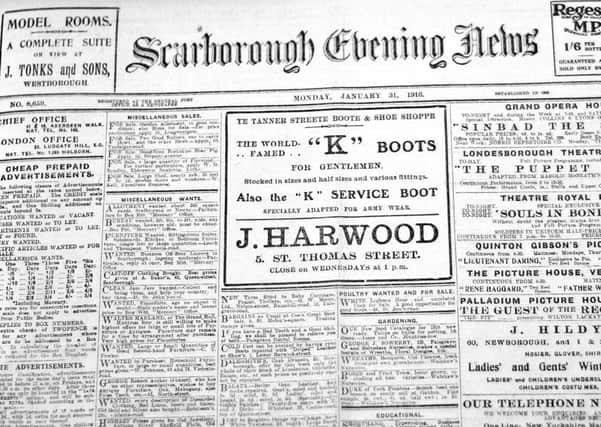1916 court: Hungry housemaid pawns ring for food


The chief constable said accused had been employed at the hotel as a housemaid and waitress on June 13th, and her services were dispensed with on June 18th. On the evening of the latter date Miss Story, assistant manager, missed a thin gold ring, with some pearls set in it, from a case in her bedroom. On the morning of June 19th the accused went to the hotel to get some things belonging to her, and Miss Story asked her as to whether she knew anything with regard to the ring. She denied all knowledge of it. Miss Story asked her the question because accused and another servant were the only two who would have access to that room. Enquiries were made by the police, and Mr Samuel Whiteley, assistant with Mr Alfred Gibson, pawnbroker, 35, Castle Road, told the bench that on June 17th at 5.30 in the afternoon accused went to the pawnshop and offered the ring in pledge. She stated she wanted 2s on it. He asked her to whom it belonged, and she said it was her own. She gave the name of Ethel Flint, and an address Providence Place. She was lent 1s 6d on the ring. On June 19th, shortly before ten o’clock, prisoner went to the pawnshop and redeemed the ring. The pawnbroker had received information from the police. She was detained, and Detective Nalton went round and arrested her. She was cautioned and charged with that offence.
Replying to a magistrate, the chief constable said it was at 8.30 on the morning of the 19th previous to accused’s visit to the pawnshop to redeem the ring, that Miss Story asked her about the ring.
Advertisement
Hide AdAdvertisement
Hide AdAccused said she went to redeem the ring to take it back to Miss Story. She was very sorry she took it. She would have taken it back on the Saturday night, but it was too late to get it out then.
Replying to the mayor the chief constable said there was no previous record against the accused. The Derby police reported that she had been a most respectable person, her parents were responsible and it was mentioned in the letter he had received that a Mr Gibson, of Derby, a great friend of both families, and who had known accused since childhood, was coming over to give information and assist in the matter in any way possible, even to being bound over as a surety, if necessary. There was one unfortunate thing about this case. The husband was very anxious to tell the bench why his wife took the ring. The reason the husband put forward was just that she took it to get food, because she had no money. The unfortunate fact, elicited from enquiry, was that the husband had neglected to provide his wife with reasonable maintenance. She had been living apart from him, more or less, for eighteen months. He was employed by his mother at an outfitting shop, doing the work of a boy - simply for the sake of giving himself employment, and receiving 15s a week. Out of that money he did not give his wife a penny. There were three children, which her parents were keeping. The woman left home, having decided to strike out for herself, and the unfortunate position she was in that day was the result. If the magistrates decided to bind the woman over he would prefer the surety of Mr Gibson to that of the husband.
Mr Gibson, Roseville Street, Derby, a member of a firm of plumbers and engineers at Derby, said he had known accused from childhood. She belonged to a most respectable family, and he did not know how she had got so low down. It had been more or less since she was married.
He believed she had been short of food, she had only had a shilling a day at Scarborough. When she realised the gravity of what she had done she went to redeem the ring to take it back. Witness had sent her a little money, and it was with some of this that she had gone to redeem the ring. Her father lay at death’s door, and the mother was very ill indeed. Witness was willing to do what he could but he thought the magistrates should point out to the husband that he should provide for his wife and family.
Advertisement
Hide AdAdvertisement
Hide AdThe husband, who gave the address, 69, Wilson Street, Derby, in the box, said his mother now had one of the children. All the misfortune had arisen, practically from his financial position.
Replying to Councillor Hopwood, he said he had to pay for his board and lodging out of the 15s. He proposed to take her to his mother’s house.
Accused acquiesced in this, and the mayor, after pointing out the seriousness of the offence, and that, if it was repeated she would be in serious trouble, said the magistrates wanted to do the best they could for her.
She would be bound over for twelve months in the husband’s recognisance of £5. If she behaved herself in a satisfactory way she would hear no more about the matter.